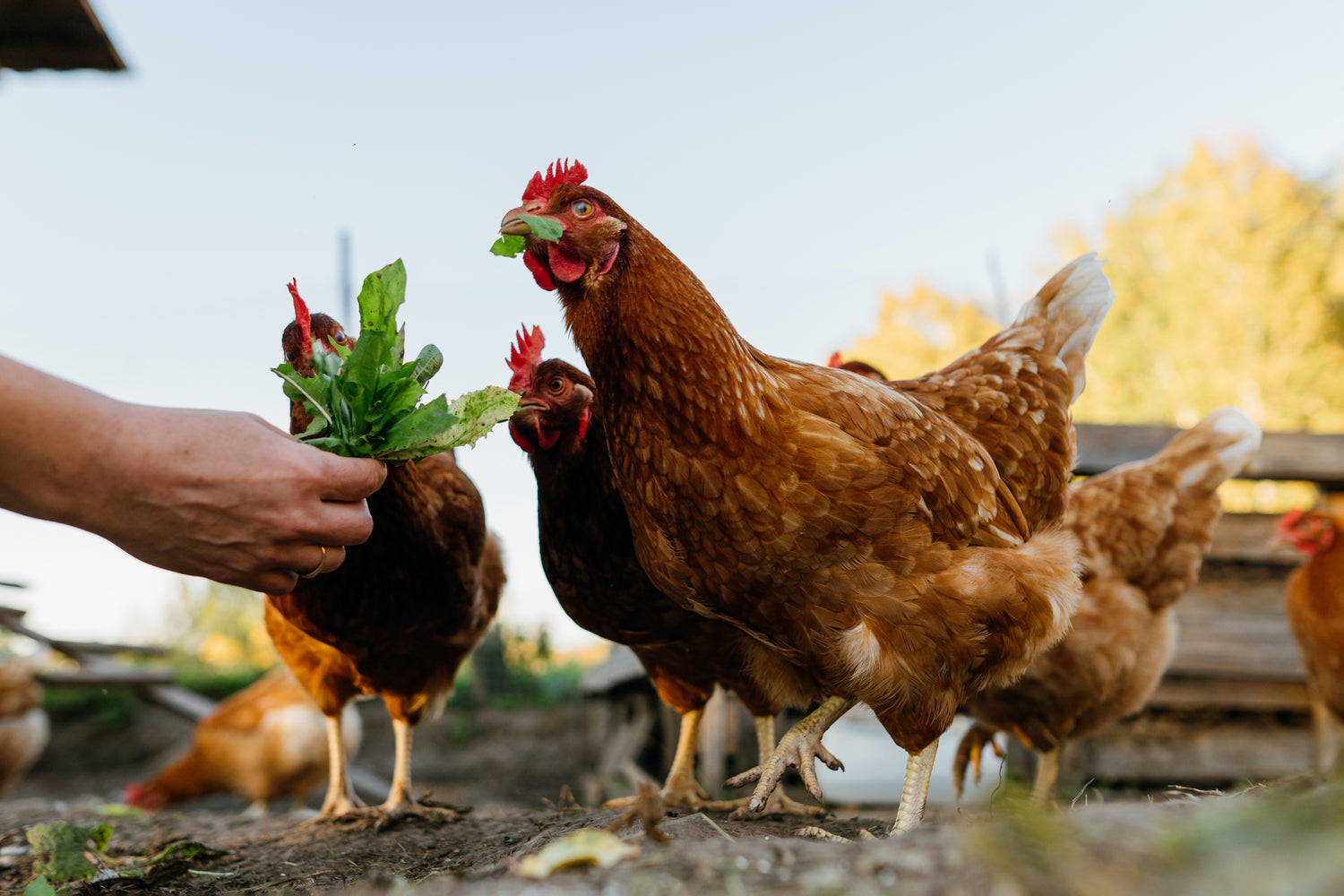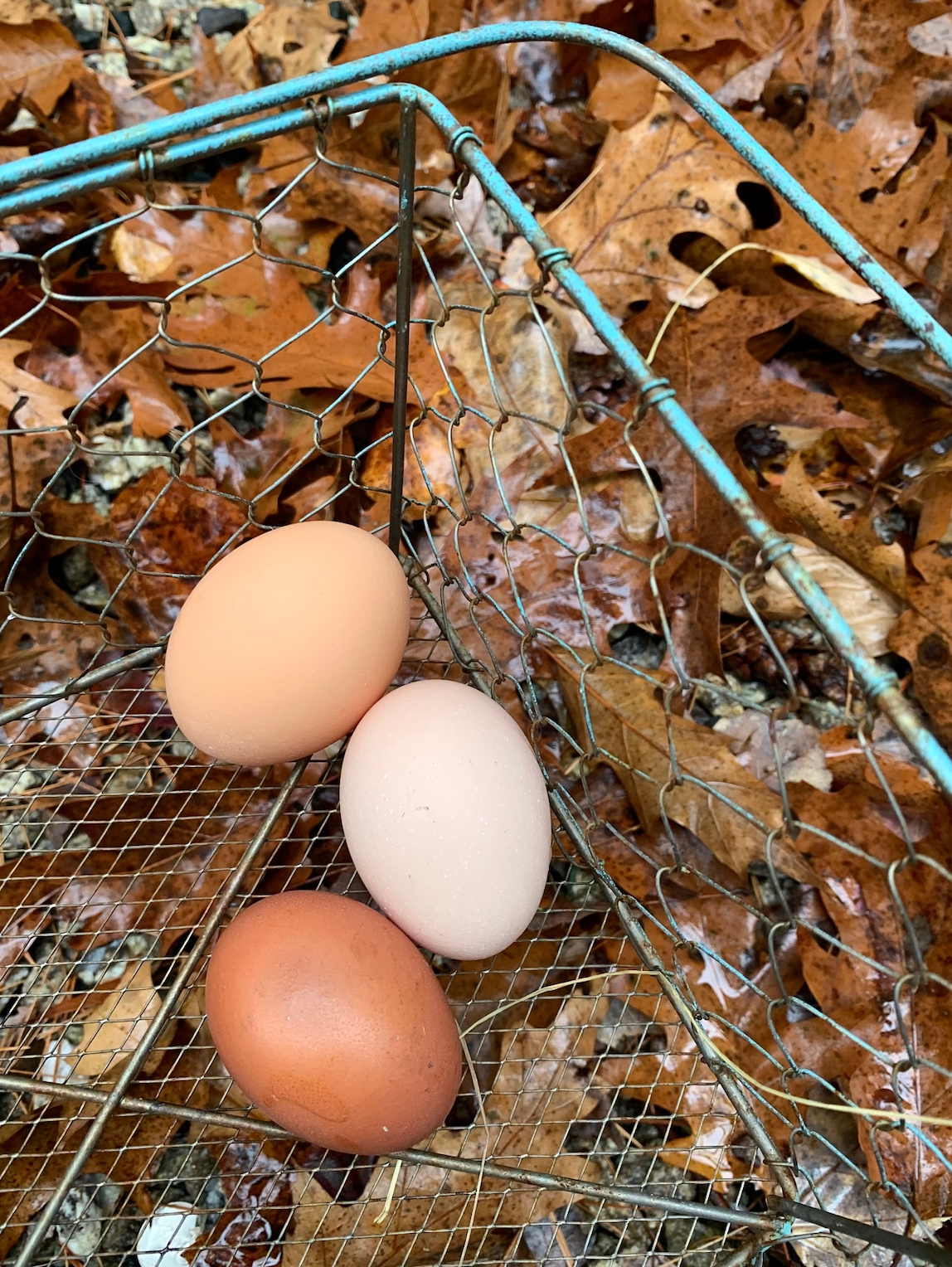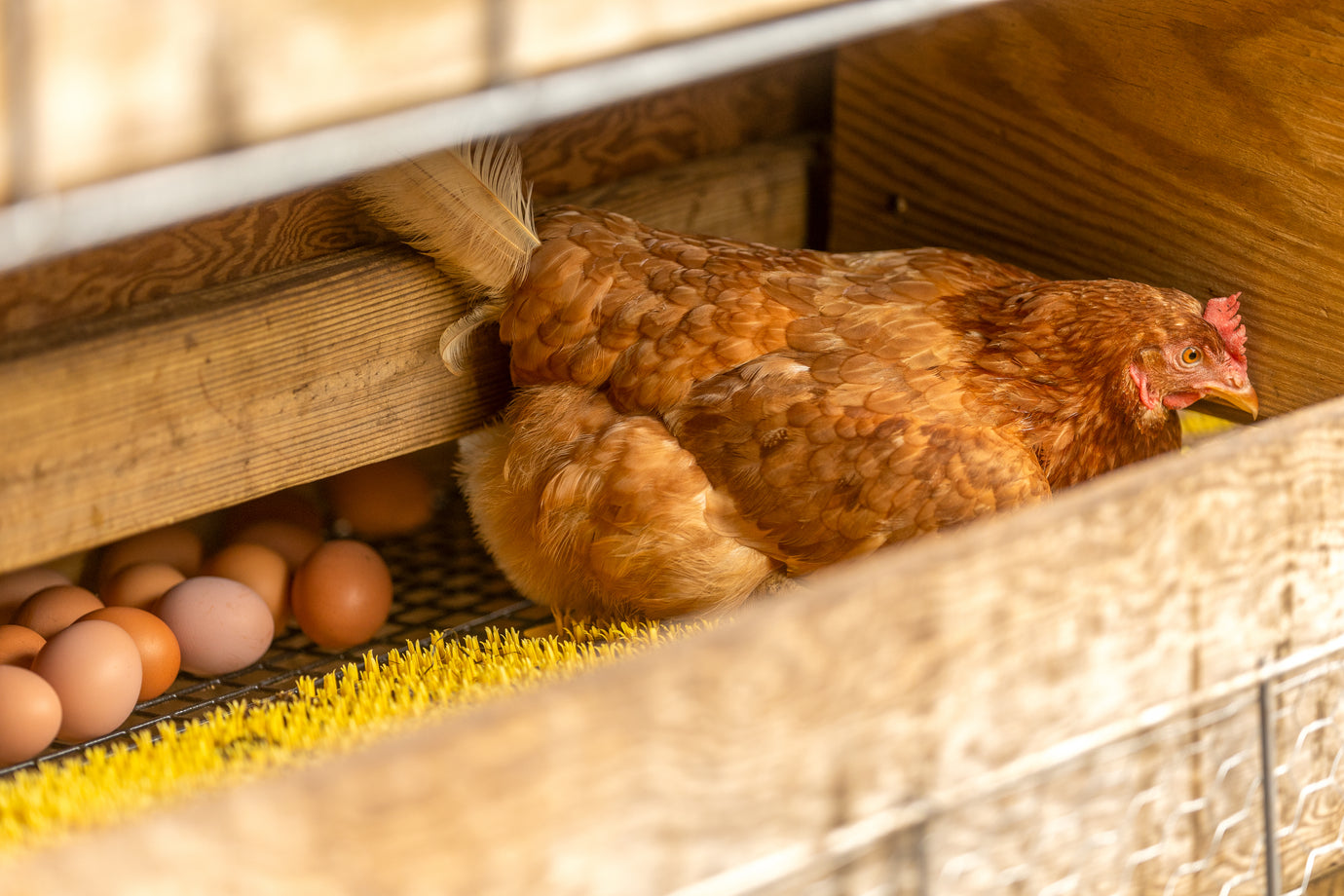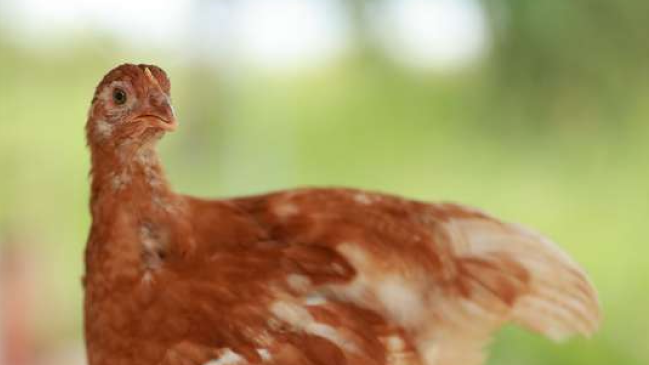What Can’t Chickens Eat?

What Can’t Chickens Eat?
One of my favorite parts of keeping chickens is feeding them leftover table scraps and getting delicious and nutritious eggs in exchange. This prevents food waste from clogging up landfills and it also saves money on chicken feed. It’s a win-win in my book!
With Thanksgiving right around the corner, you’ll likely have plenty of opportunities to share those leftovers with your flock. And most standard Thanksgiving fare is fair game for our feathered friends. Foods such as corn on the cob, leftover turkey, cranberries, and even sweet potatoes are just fine to share with your chickens. They’ll enjoy the nice treat, and you don’t have to feel guilty for throwing away perfectly good food when you get tired of eating it.
However, there are a few foods that chickens shouldn’t eat. Let’s talk about a few things you should avoid giving your hens at any time of year.
-
Caffeinated items.
- Caffeine is surprisingly toxic to chickens. Small amounts may cause anything from hyperactivity to nervous system issues and cardiac arrest. Don’t give your flock any coffee, caffeinated tea, or foods such as chocolate that are known to contain caffeine.
-
High-salt foods.
- Chickens are also susceptible to salt poisoning. Highly salty foods can cause a number of symptoms that may lead to death. You might see excessive thirst, distended or swollen bellies, lethargy, diarrhea, weakness, and even death.
Avoid giving your hens anything with a highly concentrated salt content, such as bacon, preserved meats, or other high-sodium foods.
-
High-sugar foods.
- An occasional sugary treat is probably ok for your hens, but high-sugar foods on a regular basis can cause obesity in your hens. It can also mean that your hens are filling up on empty calories and not eating enough nutritious foods. This can lead to poor egg laying and poor egg quality. When in doubt, skip it, especially since sugary foods and salty foods seem to go hand in hand.
-
Moldy, rotten, or old foods.
- It’s fine to feed your chickens food that isn’t appetizing anymore. For example, slightly wilted lettuce or bread that has gone stale won’t cause an issue. However, if it is unsafe for humans to eat, it’s also unsafe for chickens. Avoid feeding them anything that is moldy, rotten, or that may present a risk for food poisoning.
-
Nightshades.
- Nightshades contain a chemical called solanine, which is toxic to chickens. It can cause digestive, heart, and respiratory problems. It can even cause death.
Nightshades that should be avoided are tomato plants and green tomatoes (ripe tomatoes are just fine). You should also avoid feeding your chickens potato plants, raw potatoes, or potato skins. When a potato looks green, it has a high solanine content, making it unsafe for humans and hens alike.
That being said, cooked potatoes without the skin are perfectly fine. Unsalted French fries, mashed potatoes, or hash browns should also be safe for your flock.
-
Raw and uncooked beans.
- Raw or dried beans contain a compound called phytohemagglutinin. This compound is highly toxic to chickens and as few as three beans can make them sick. If a chicken ingests raw beans, it can get sick and even die in as little as an hour.
However, cooking beans causes this compound to dissipate, so well-cooked beans are ok in moderate amounts. Sprouting the beans also makes them safe for your chickens to eat.
-
Avocado.
- All parts of an avocado are poisonous to chickens, including the meat, skin, pit, and plant. Avocados contain a toxin called persin, which can cause the chicken to collapse and die. It can also cause lethargy and heavy breathing. It’s best to avoid all forms of avocado.
-
Apple seeds.
- Apple peels, applesauce, and apple slices are a delicious and healthy treat for chickens. But the seeds are a different story. Seeds from apples, pears, plums, peaches, and cherries release a chemical that can become cyanide when digested. Cyanide can be fatal for your hens. So, while the fruit is a great treat, just be sure to remove the seeds before you feed it to them.
-
Rhubarb leaves.
- Rhubarb leaves contain a high level of oxalates, which is dangerous for both people and chickens.
-
Too much spinach.
- Spinach also contains oxalic acid, although not as much as rhubarb leaves. So a little bit of spinach here and there is just fine, but be careful to only feed it in small amounts. Too much oxalic acid prevents your hens from being able to absorb calcium, which is hard on their bones, creates weak eggs, and can make them very sick.
-
Dried rice.
- Leftover cooked rice is a nice treat for your flock, but avoid feeding them large amounts of dried or uncooked rice. Too much uncooked rice can expand and cause too much compaction in their GI tract, making digestion difficult. While small amounts of dried rice are probably ok, avoid large quantities.
Foods like onions and garlic should also only be fed in small doses. Onions in large doses can cause anemia. It can also cause off-flavors in your eggs. Citrus is ok in small doses, but giving too much can cause stomach upset. Peanuts are questionable treats for your hens. While they are often touted as a special treat for wild birds, there are compounds in raw peanuts that can make your chickens sick. Small quantities of roasted or cooked peanuts may be better, but only in very small amounts.
If your flock is well-fed, if they are free-range, and there isn’t a lot of competition for food within your flock, your hens will be more likely to leave the off-limits foods alone if you feed it by mistake. However, if your chickens are confined, or if some hens are kept from eating until the others have had their fill, you may find them more likely to eat foods that aren’t safe for them. So don’t panic over past mistakes, but do try to avoid these unsafe foods going forward.
There are many safe table foods that you can give to your chickens to offset feed costs and save on waste. It’s always best to use these in addition to a steady diet of a reputable, nutritionally balanced feed or alongside a supplement such as Nutriplex-W™, which contains key enzymes to aid in daily digestion. This makes sure your hens can live their healthiest, best life.




